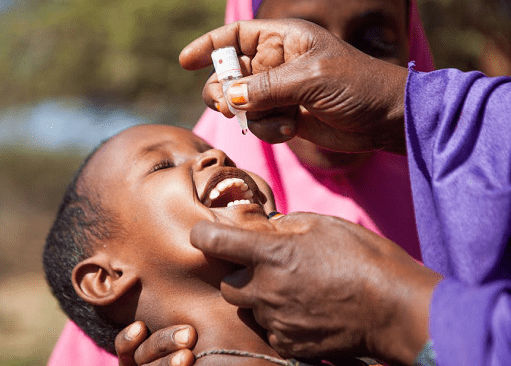
The United Nations Children’s Fund has revealed that at about 2.2 million children in Nigeria were not immunised between 2019 and 2021.
It also noted that globally, 67 million children missed out on routine immunisation between 2019 and 2022, as 48 million of them did not receive a single routine vaccine.
UNICEF Chief of Health in Nigeria, Dr Eduardo Celades, made the disclosures in Abuja on Thursday.
He said, “A total of 67 million children missed out on vaccinations between 2019 and 2021 with vaccination coverage levels decreasing in 112 countries.
“Children born just before or during the COVID-19 pandemic are now moving past the age when they would normally be vaccinated.
“This underscores the need for urgent action to catch up on those who were missed to prevent deadly disease outbreaks.”
He told journalists that Nigeria trailed behind India in the number of children not immunised during the period.
He noted that the number of Nigerian children that were not immunised remained high in spite of efforts made by the country.
Celades also noted that the number of measles cases recorded in Nigeria in 2022 was more than double the total recorded in 2021.
“As at the end of 2021, India and Nigeria (countries with very large birth cohorts) had the largest numbers of unimmunised children, with Nigeria having two million children unimmunised,’’ he said.
He stressed that Nigeria is currently nowhere near the global vaccination goal because of challenges encountered in immunisation programmes.
“Challenges such as distrust in government, poor cold-chain management, and poor communication during the onset of vaccination programmes all contributed to the inability to attain set goals.
“The major causes of low immunisation rates are fear of side reactions, lack of knowledge or information, service delivery issues, mistrust or fears, and distance to immunisation sites, among others,’’ Celades said.
He stressed that the benefits of immunisation could only be fully realised when children received all recommended doses of vaccines promptly.
Celades noted that even in states with well-performing immunisation programmes; there were pockets of unreached or hard-to-reach populations for whom special efforts were needed.
He pointed out that strengthening routine immunisation and services was critical to achieving high coverage and reaching national and community disease-eliminating targets in Nigeria.
To be fully immunised, children under five years of age are expected to receive BCG, a vaccine against tuberculosis; Oral Polio vaccine and DPT vaccine – a combination of vaccines against diphtheria, pertussis, and tetanus.
They are also expected to receive Hepatitis A and B vaccines; Measles vaccine; Yellow fever vaccine and supplemental vitamin A.
The BCG vaccine is given at birth or as soon as possible after birth. The Oral Polio Vaccine is also given at birth and at six, 10, and 14 weeks of age, respectively.
The DPT vaccine is given at six weeks, 10, and 14 weeks of age; that of Hepatitis B vaccine is given at birth, six weeks and 14 weeks of age, while the Measles vaccine is given at nine months of age.
(NAN)













